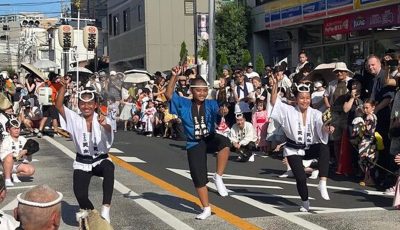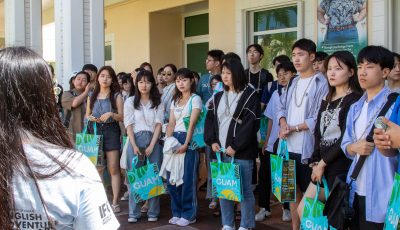Mianzi, mentsu, chemyon
What Sinosphere has in common is a vertical social organization where social status counts on behavior and achievement. Thus, each of the cultures has a constant built-in perspective and social behavior to maintain and enhance “face”.
China has “mianzi”, Japan, “mentsu”, and Korea, “chemyon”. All three represents the same phenomenon of being concerned with one’s social standing in society through social reputation. A child taking the University entrance exam in China, Japan and Korea do not do so to simply qualify for College. The student performs for the family’s name and social standing, and not getting a high grade is an insult to the family name. Parents, thus, spend everything just so their student gets all the elbowroom ze needs to pass the test. Those who fail sometimes get suicidal, seldom homicidal, to oblivion in despair.
At the recently concluded gaokao held in Shenyang that determines entry to University, parents from out of town accompanied their pampered child to the test and were billeted in one of my University’s buildings as a sign of the school’s support to the families. The taking of the test and the result are measures of social standings, a very grave clan event, before, during, and after.
There are comparable practices in other Oriental places. “Mukha” is the equivalent in the Philippines, though less stringent but equally popular to its counterparts in the rest of Asia. Pinas worries about what people say (ano na lang ang sasabihin nila) rather than the truth, or what is real or authentic. A shameless person is often referred to as one without face (‘alang mukha). Though unfamiliar with the words used, the same allegedly holds true in Indonesia and Malaysia, as well as the rest of Austronesia, south and southwest Asia, and the Pacific islands.
China, Japan and Korea are, however, inextricably caught in a perpetual “face” game, but with a difference from western image. The practice ensures that the face of the other is never tarnished when one cares to further the cause of one’s own face. This is opposite to the western notion of looking after #1 where competition leaves others behind. The Sinosphere face game carefully avoids diminishing the outward reputation of another. There is deference, a “subordinate” understanding.
Inversely, there is the incidence of always doing something for the other, particularly to revered ones like elders. It is not uncommon for the younger ones to just go ahead a do something on behalf of elders without asking them first if they want something done for them, experienced as oppressive.
In the west, where children are trained to do things themselves, it offensive for someone to do something one normally does just because a person feels it their duty and obligation to be helpful. More so if the doers proudly think of themselves to be below a recipient’s station, thereby, gets a derivative status from being helpful.
Truth is often sacrificed at the altar of face, the worst consequence of the “face” game. Social status becomes the be-all and the end-all regardless of what is real. Authenticity is shelved; reality is shrouded with incense. Delusions of grandeur get the Amen!
In China, Mianzi is physical before it is figurative. It refers to social face though lien, the new form, connotes shame and self-blame when lost, while the former is conferred. Related to the prestige of face are those of good relations and extended favors; the practice spills over into behavior of gift giving to anticipate paybacks to maintain harmonious connection. It deteriorates in bribery, though the distinction between gratitude and influence peddling is a moral judgment.
Mentsu in Japan means politeness. Social face is negatively expressed in the basic claim to hereditary prerogatives, territorial reserves, personal elitism, and assertive rights on freedoms. The positive face claims personality, a projection of self-image approved and accepted by others. Japan is big on self-image, both in its care-filled expression as well as its arrogant appearances. At the door in a crowded Tokyo Metro, it is not uncommon to see one bow to another first before one pushes the other for more space.
Chemyon in Korea is absorbed self-consciously and several elements like ethics, pride, performance, personality, competence, shame and demeanor are at play. Heavily social chemyon is also personal. The social tends towards then more negative in competitive settings while the personal one tends to be positive on the cooperative side. In any case, chemyon defines relations in the highly stratified structure of Korean society.
Relation with Sinosphere denizens in Saipan is hard to navigate without consideration of social face. Experience with disaster volunteers wanting to learn English was a rude awakening when we ignored the requirements of “face”. On the other hand, students quiet down when to told the leave “face” outside the classroom door. We learn.



























